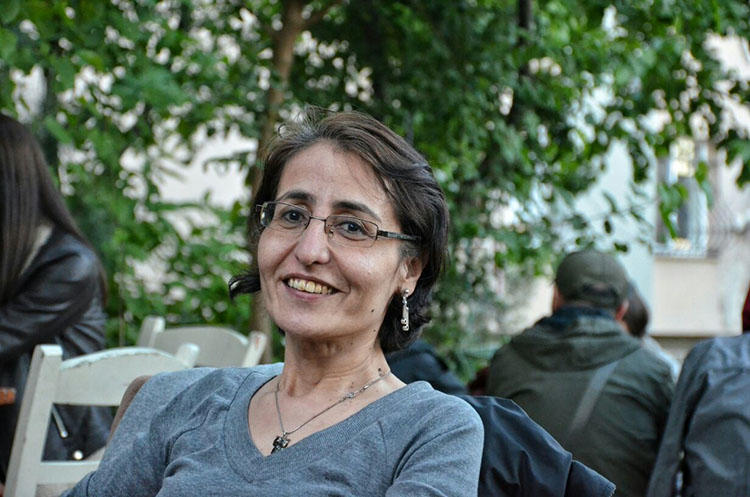If somebody is legally under house arrest but in practice not, are they free? Semiha Şahin, an editor at the socialist Etkin News Agency (ETHA), confronts this question—and the legal ambiguity that it poses—every day. A Turkish court released the journalist under house arrest in June, pending the outcome of her trial, but authorities have not yet fitted her with an electronic tracking device or set the terms of her detention.
When CPJ spoke with Şahin via email and messaging app in September, as part of its research for the 2019 prison census, the journalist explained that she was under house arrest on paper only. Şahin agreed to go on record about her situation, despite acknowledging that publicizing the circumstances of her case may not work in her favor.
“The decision of the court may be put into execution at any minute. I may be taken into custody if I happen to walk into a police checkpoint anywhere,” Şahin, who is based in Istanbul, said. “This is a problem that affects both my professional and personal life.”
Before her release, Şahin spent over 400 days in prison on charges of “being a member of an armed terrorist organization” and “making propaganda for a terrorist organization”—common accusations leveled against journalists who work for outlets that Turkish authorities deem are aligned with Gülenists or the Kurdistan Worker’s Party (PKK): groups they accuse of being terrorists.
In Şahin’s case, the charges are linked to the outlet where she works. While ETHA is legally allowed to operate in Turkey, the Istanbul prosecutor who indicted her appears to disagree. When citing Şahin’s work for ETHA as evidence, the prosecutor described the news outlet as “[operating] through the idea and ideology of the terrorist organization MLKP.” Other apparent evidence included social media posts and coverage of events by the Socialist Party of the Oppressed (ESP), a political party that authorities say is associated with the Marxist Leninist Communist Party (MLKP).
Şahin, who was in prison from April 19, 2018 to June 13, 2019, said that while she was not tortured in the regular sense of the word, she thinks of the detainment “as torture and mistreatment in itself.” The journalist added, “The fact that I was not physically tortured does not affect this situation.”
Şahin said that while in prison her mail was sometimes delayed, always monitored, and that letters she sent sometimes did not reach their destination. She said prison authorities denied her access to left-wing or pro-Kurdish newspapers and that if she had needed medical treatment, the authorities would have taken her to appointments in handcuffs.
These are all issues that Turkish journalists or their lawyers frequently mention to CPJ. What makes Şahin’s case different is the circumstances of her release. Usually in Turkey, when a court places someone under house arrest, authorities immediately fit the individual with an electronic device that monitors their whereabouts. But in Şahin’s case, that has not happened.
Ahmet Ergin, a lawyer who represents journalists and unions, speculated that with prisons overpopulated in the wake of the 2016 failed attempted coup, a lot of people were transferred to house arrest, which caused a shortage of electronic tracking devices. “Therefore, despite the court order, some people cannot be equipped with an electronic bracelet and their situation changes from house arrest into what essentially becomes a foreign travel ban,” Ergin said.
Özcan Karakoç, the lawyer representing Şahin, also mentioned the electronic device shortage as a possible reason for her current situation, and said another reason could be the courts’ workload.
For now at least, Şahin is not confined to her home and is back in the newsroom. But she can hardly be considered free. She is listed in an electronic criminal database as being under house arrest. If the police were to stop Şahin in the street and check her identification against the database—a common occurrence in Turkey—she could be jailed for violating the terms of her house arrest.
Şahin, who is next due in court on December 11, said, “The house arrest is an element of oppression in itself. I have felt that since the first moment I have been released.”
[Reporting from Istanbul]
[Hakkı Özdal, a journalist who assists with CPJ research on Turkey, contributed reporting and research to this blog.]
